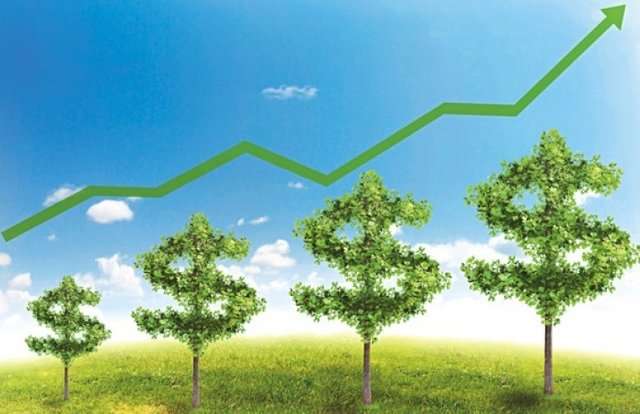Within the criticisms to the model development key, is usually accepted the argument about the ineffectiveness of market mechanisms in the allocation of resources and value to environmental issues. In the case of rural development. This argument is empirical evidence on the growing trends of degradation or overpressure of soils and depletion of water sources caused by logging as a compulsive strategy of insertion in the market in two ways: increasing per unit area (pressure) or extending the frontier of production, (logging).
This economic rationality with which acts the producer, leads to a "short-sighted" management of natural resources through practices and extractive technologies involving increasingly fragile environmental balance that underpin survival strategies. These arguments actually conceal the origins of the degradation and depletion of resources from centuries ago, caused by extraction and extinction still prevailing cultural systems.
The notion of sustainable development both refers to the need to interpret the problems and present phenomena from an approach that recognizes the limitations of economic growth, because we are on a planet with a few resources that do not grow quantitatively as it was believed from the economy. At the same time is recognized in the history of the cultures, traces of appropriation or exploitation of resources in harmony with ecology; opposed to the destructive potential of modern culture.

The thought of sustainable development seeks to meet socio-cultural diversity and reconciliation of strategies that are universally accepted as practices and patterns of behavior that define the cultural traits of the postmodern society. In this regard, this approach emphasizes the importance of energy and ecological efficiency in the use and management of natural resources; as well as the distributive aspects of development among the most vulnerable social groups of the same generation, (equity and social justice) and future generations.
It seeks to achieve, in the short and long term, viable balances based on gross domestic product growth and the distribution of wealth as a benchmark of the principle of equity. This is the main criterion of investment and localised or regional, public policies since that recognizes the need to equate opportunities for the population to be inserted or make global changes.
A marketing strategy aimed at the extraction or exploitation of resources creates two environmental problems of great social impact: one side increases the fragility of the biophysical basis and on the other hand, decreases the possibilities of overcoming poverty conditions linked to the income and living conditions. Equity is necessary, but not sufficient condition for sustainable human development objectives. It is necessary to grow steadily to where the environmental production possibility frontier, not compromised a sound environment and conditions of long-term resource productivity.
In this sense, the output of the vicious circle between poverty and environmental degradation is related to the need for cultural changes led to a new strategy of rural development; based on the autonomy of the producers for the allocation and efficient management of resources and the reorganization of the use of the territory. This approach tends to strengthen the intervention of the State based on enhancing the participation of the community in the formulation of policies for environmental management of the development and recreation of new spaces for action and social coexistence.
In this context the objectives of sustainable development, involve the options in game that are traded at the current stage of globalization and fragmentation that challenge employers, the State and society to enhance energy and ecologically, natural capital, the condition of social equality and democratic coexistence.
Sustainable development involves growth and equity objectives, as well as the problem of the conditions of reproduction of the population in terms of sustainable growth. The interception of these three principles alters the conditions and extent of the biophysical basis (depletion, degradation or contamination), what constitutes a particular environmental production possibility frontier; beyond of which is impossible or very precarious possibilities for development of rural communities on a scale micro-regional, regional, or national.
In the recent experience of land management, the environmental possibilities of development border is an approach to sustainability and sustainability indicators; taking the latter as a coefficient of net population containing each municipality incorporating migration, births and movements of structural origin with origin in the war as in the case of Colombia.
Sustainable development involves socio-cultural changes and modes of regulation of the market conditions for the allocation of resources and value or price within the framework of the principle of social equity and equality of opportunities.
Great article!
Downvoting a post can decrease pending rewards and make it less visible. Common reasons:
Submit
Nice info, i'm following you now
Downvoting a post can decrease pending rewards and make it less visible. Common reasons:
Submit
Excellent information
Downvoting a post can decrease pending rewards and make it less visible. Common reasons:
Submit